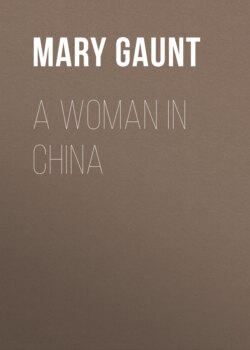Читать книгу A Woman In China - Mary Gaunt - Страница 23
На сайте Литреса книга снята с продажи.
CHAPTER V—THE FUNERAL OF AN EMPRESS
ОглавлениеTable of Contents
A good republican—The restricted Empire of the Manchus—Condign punishment—Babylon—An Adventurous Chinaman—The entrance to the Forbidden City—The courtyards of Babylon—A discordant and jarring note—Choirs of priests—A living Buddha—“The Swanee River”—The last note in bathos—Palace eunuchs—Out of hand—Afternoon tea—The funeral procession—The imperial bier—Quaint and strange and Eastern.
The Dowager-Empress of China, the unloved wife and widow of the late Emperor, died, so they gave out to the world, on the 22nd February, 1913, the day I arrived in China. As Empress, just one of the women of the Court chosen to please the ruler and to bear him children, his consort in China never seems to have had any particular standing. This Empress was overshadowed by her aunt, the great Dowager-Empress whom all the world knew, but once the Emperor was dead, as one of the guardians of the baby Emperor she came into a certain amount of power, for the position of Dowager-Empress seems to be an official one as, since her death, another woman who has never been wife to an Emperor has been appointed to the post.
The power has gone from the Manchus, but China is wedded to her past, nothing passes, so even the Chinese Republic, the men who barely a year before had ousted the Empress from her high estate, united in doing her honour at her obsequies.
“She was the best republican of us all,” said a Chinese gentleman, learned in the lore and civilisation of the West, “for she freely gave up her position that China might be free.”
It was a pretty way of putting it, but to me it seems doubtful whether anyone in over-civilised China trammelled with many conventions, is free, and it is hardly likely that a woman bred to think she had attained the most important position in the world that can fall to a woman's lot, would give it up freely for the good of a people she knew absolutely nothing about. All the Manchus rule over now are the courtyards and palaces of the Forbidden City, and there they are supreme. It is whispered that only a week before the day of which I write, a man was there beaten to death for having stolen something belonging to the dead Empress. So much for the love of the Manchus for freedom and enlightenment. It carries one back to the Middle Ages—further, to Babylon.
“They slew there mercilessly, and they also feasted—so did the representatives of the dead Empress hold high festival in her honour.
“The King made a feast unto all the people that were present in Shushan the palace, both unto great and small, seven days, in the Court in the garden of the King's palace.
“Where were white, green, and blue hangings fastened with cords of fine linen and purple to silver rings and pillars of marble, the beds were of gold and silver, upon a pavement of red, and blue, and white, and black marble.
"And they gave them drink in vessels of gold... and royal wine in abundance, according to the state of the King.”
So Ahasuerus the King entertained his people of Babylon, when Vashti the Queen fell, and of Babylon only could I think when, first I entered the Forbidden City.
